Delta Highlights
With a wide range of products that include trading in futures, swaps, and options, Delta Exchange is an established company in the cryptocurrency derivatives market. To help you decide if Delta Exchange is an appropriate platform for your trading specifications, this review highlights the platform’s main features, fees, security measures, and user feedback.
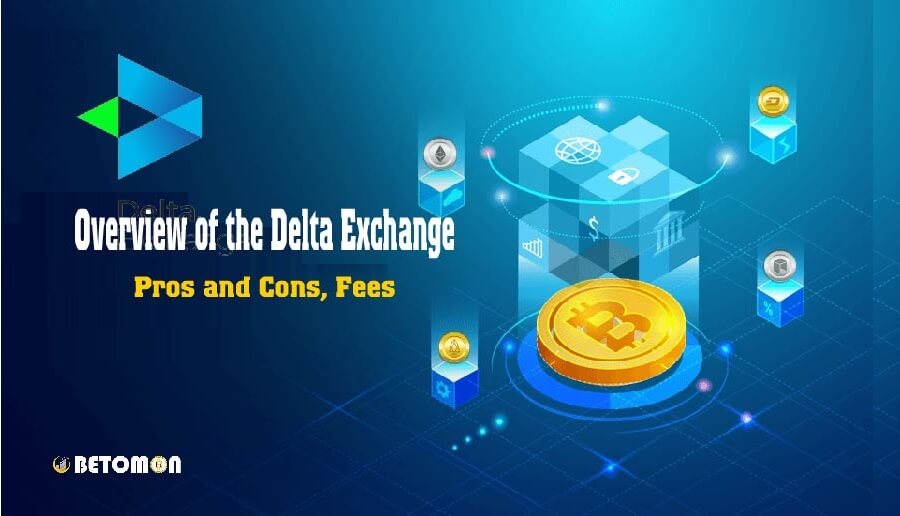
- Delta provides futures contracts trading for over 50 DeFi coins and altcoins including Bitcoin and Ethereum.
- The platform is known for its exclusive demo account supporting traders to practice strategies without risking real money.
- Delta Exchange is headquartered in Saint Vincent and the Grenadines.
- Participants may earn passive income by staking cryptocurrencies like DETO, BTC, USDT, and ETH.
- The platform implements comprehensive security measures such as multi-signature cold wallets, two-factor authentication, and a substantial Insurance Fund.
- It offers competitive fees and volume-based discounts making it cost-effective for high-volume traders.
What Is Delta Exchange?
Delta Exchange is a cryptocurrency derivatives exchange that established a strong market position for itself due to the current increase in demand. Delta is headquartered in Saint Vincent, Grenadines.
Users of Delta have access to up to 100x leverage. However, its unique demo account makes it appealing to daring investors. Traders may practice their strategies and skills on this virtual platform without risking real money.
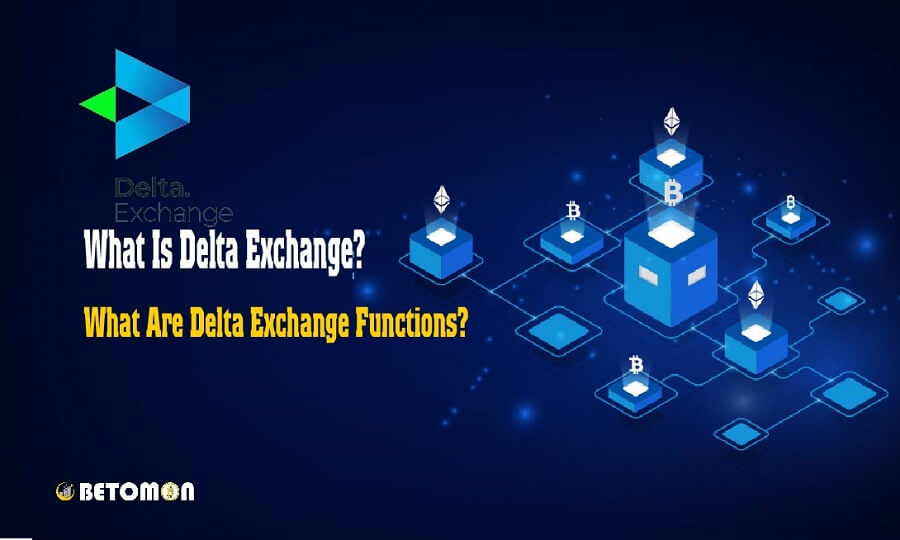
Unlike other conventional exchanges, this cryptocurrency exchange has a unique strategy. It supports futures contract trading with over 50 DeFi currencies and altcoins. However, it doesn’t stop with Bitcoin and Ethereum, it also promotes the trading of cryptocurrency derivatives making it a platform more appropriate for experienced traders looking to dabble in more complex financial products.
In addition to futures and options, the Delta Exchange cryptocurrency platform offers further trading alternatives. Traders may swap interest rate derivatives on Bitcoin and several other cryptocurrencies using the same 100x leverage. This portfolio of services enhances its position in the cryptocurrency trading market.
Delta Exchange aims to provide accessibility to the complex world of cryptocurrency derivatives for both novices and experts equally. It allows a large selection of perpetual contracts and an exclusive list of altcoin-based derivatives such as Tezos, ATOM, BAT, RVN, and others.
How to Open an Account at Delta
- Access the official Delta Exchange website
- Sign up: Select the Sign Up button located in the upper right corner of the screen.
- Provide personal information: Enter your email address and create a password. Please make sure that you choose a strong, unique password to increase the security of your Delta Exchange account.
- Referral code (optional): If you have a referral code, you can enter it in this step. A valid referral code could provide benefits such as a discount on trading fees.
- Agree to terms and conditions: Before move to the next step, you’ll need to confirm that you have read and agree to Delta Exchange’s terms of use and privacy policy.
- Account verification: Once finishing the sign-up procedure, you will receive an email to verify your account. Click on the link sent to your email to complete the account verification.
- Set up Two-Factor Authentication (2FA): For further security, you ought to set up two-factor authentication for your account. This includes linking your account to an authenticator app on your mobile device that provides a unique code for you to use when logging in.
Kindly note that the following countries are not currently supported by Delta Exchange: the United States of America, St. Vincent and the Grenadines, Cuba, Canada, Afghanistan, Cambodia, Pakistan, Iran, North Korea, Syria, and Crimea.
However, they can still experience the platform to practice trading strategies with the Delta Exchange Testnet, a mock trading environment.
Is Delta Exchange Safe?
To secure users’ funds and personal data, Delta Exchange has implemented a variety of security methods including storing money in multi-signature cold wallets, enhancing account security with two-factor authentication (2FA), manually approving each withdrawal request, and maintaining a secure infrastructure with the use of cutting-edge technologies such as IP whitelisting, SSL encryption, and traffic monitoring.
It’s important to remember that there have been situations in the past where data breaches may have resulted in the exposure of client information. Although Delta has taken significant precautions to strengthen its security, users still need to be cautious when trading online.
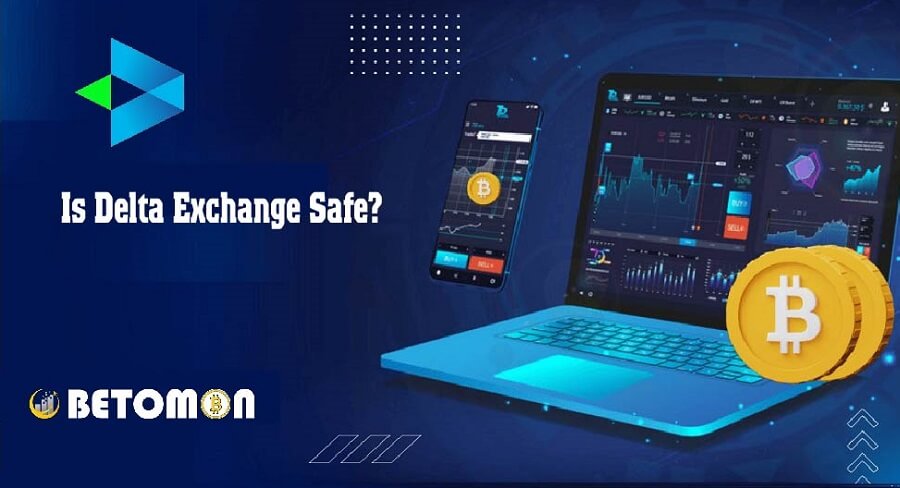
The Delta platform also offers customer protection through an Insurance Fund, which is activated when a position in liquidation cannot be liquidated before the bankruptcy price is reached.
The fund is intended to cover losses of up to 5% for Bitcoin (BTC) and Ethereum (ETH) contracts and 2% for all other contracts. Besides, the Insurance Fund has a notable balance of more than $2 million.
What Are Delta Exchange Functions?
Delta provides features that include futures and derivatives trading, a mock platform, staking, native tokens, high trading volume, and an insurance fund.
-
Support for Futures and Derivatives Trading
The Delta Exchange platform is renowned for its assistance in exchanges for futures and derivatives. More than 50 DeFi currencies and alternative coins are available for purchase and sale as futures contracts. This feature is particularly appealing to experienced traders since it allows them to leverage their position and potentially make greater profits.
-
Demo Trading
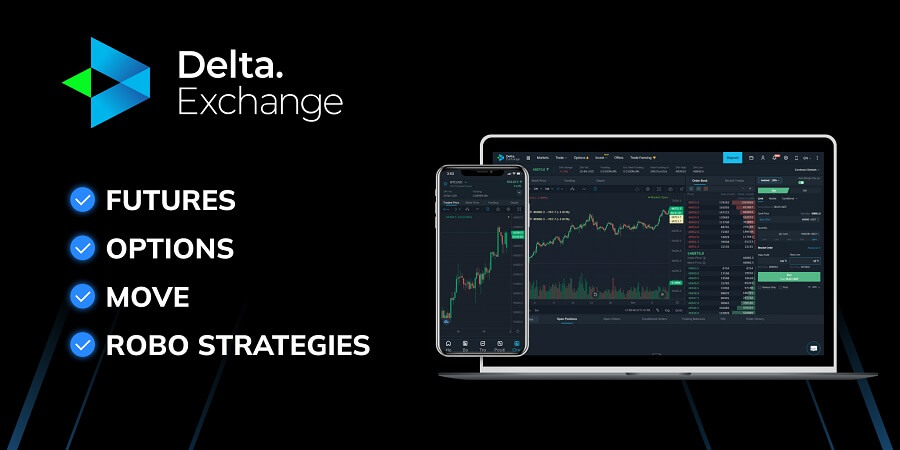
Additionally, Delta Exchange offers a demo account helping customers to get experience trading virtual assets. This tool is very helpful for newcomers who want to discover the platform and try out different trading approaches without risking any real money.
-
Delta Invest and Native Token
In order to earn a return on their crypto holdings, users of Delta Exchange can also stake the following coins: ETH, DETO, BTC, and USDT. This feature improves the exchange’s attractiveness by offering customers who choose to stake their tokens with a passive income stream.
Furthermore, investors may profit from limitless fee-free withdrawals if they support the native token of the Delta crypto exchange, DETO.
-
High Trading Volume
The liquidity of traders is guaranteed by Delta Exchange’s large trading volume. A high trading volume is a positive factor since it usually indicates less slippage and tighter spreads, attracting new and seasoned traders to the platform.
-
Insurance Fund and Liquidation Mechanism
If the platform is unable to complete a liquidation position prior to the bankruptcy price breaching, Delta Exchange’s Insurance Fund will be activated. The liquidation engine is prepared to close all holdings it acquires at a 5% loss for Bitcoin and Ethereum contracts and a 2% loss for all other contracts.
What Are Delta Exchange Fees?
The trading fees are vary according to the type of contract:
- In inverse futures and USDT linear futures, the taker fee is 0.05%, maker fee is 0.02%, settlement fee is 0.05%, and the liquidation factor is 0.2.
- ALT-BTC futures come with a uniform fee of 0.1% for taker, maker, and settlement, with a liquidation factor of 0.2.
- Options and MOVE contracts have the same taker, maker, and settlement fee of 0.03% and a liquidation factor of 0.5.
- Spot trading is charged a fee of 0.05%.
For instance, a negative fee indicates that the trader has received a refund. At the moment of settlement, the trading fees for each contract are determined by the notional amount of the position, and the settlement charge is applied to all open contracts. To avoid excessive costs on deep out-of-the-money options, the Delta Exchange trading charge is restricted at 10% of the option premium.
Regarding deposits, Delta Exchange accepts any amount as a minimum deposit for any cryptocurrency. Nevertheless, before a deposit is credited, different networks require different numbers of confirmations. For example, XRP, SOLANA, and USDT (TRC20 and POLYGON) require 1 confirmation, whereas BEP20-based deposits require up to 15.
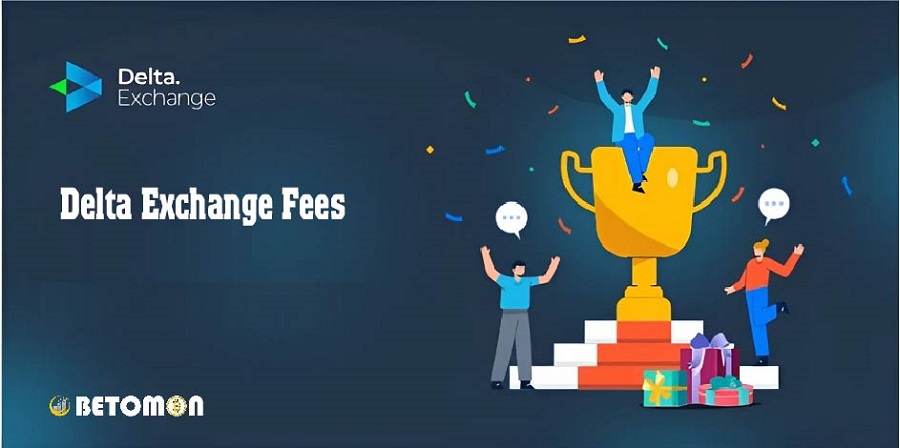
Additionally, its withdrawal fees are clear and reasonable. For instance, the withdrawal fees for ETH (ERC20) are 0.0025 ETH, 0.001 BTC for BTC, 1 USDT for USDT (BEP20 and TRC20), and 10 USDT for USDT (ERC20). On the other hand, users of Delta Exchange Tokens (DETO) have no withdrawal fees. Different cryptocurrencies require different minimum withdrawal amounts.
Most withdrawals are handled within 30 minutes, however others might take up to 24 hours.
Delta Exchange Customer Support
We have examined several customer service options in order to correctly assess Delta Exchange:
- Email support: Delta Exchange provides email support for its usersin case they have any questions or concerns.
- Live chat: It enables users to chat in real time with a customer support representative.
- Help center: Delta Exchange supports Help Center on its website including guides and FAQs on a wide range of topics, from getting started to understanding trading fees and security measures.
- Social media channels: Delta Exchange is also active on social media platforms such as Twitter, LinkedIn, and Telegram.
Customer Reviews – What Do Customers Say About Delta Exchange?
Delta Exchange has a TrustScore of 2.3 out of 5 based on a variety of customer evaluations. Some people compliment its user-friendly design and variety of cryptocurrency variants while others express concerns, calling it a “scammer exchange.” These opposing Delta Exchange reviews emphasize how crucial it is to conduct thorough research before utilizing these kinds of services.
Final Thoughts: Is Delta Worth It?
Because of its unique characteristics, which include advanced trading options, high trading volumes, robust security measures, and demo trading, Delta Exchange positions itself as an appealing platform for trading cryptocurrency derivatives, with a focus on futures and options. However, potential consumers should be aware of its national limitations and uncontrolled position.
FAQ
-
Is Delta Exchange legit?
Delta Exchange is a legal cryptocurrency exchange that focuses on futures and derivatives transactions. Since its founding in 2018, it has shown to be a reliable platform for cryptocurrency trading.
-
Which country is Delta Exchange based in?
The headquarters of Delta Exchange are located in Saint Vincent and the Grenadines. It is an international platform that caters to users from all over the world, except for a few restricted nations including the US, Canada, and others.
-
Is Delta Exchange regulated?
After conducting research, we discovered that Delta Exchange is an unregulated platform.
-
Which is better: Delta Exchange or Binance?
This is dependent on your requirements. You can choose Binance for general trading and a diverse range of currencies or Delta for crypto derivatives. Never forget to take your requirements and risk tolerance into account.
Betomon is a website that reviews, analyzes and knowledge shares about safe and stable financial investment projects on the theme of crypto forex blockchain… Projects to make money online for free
Visit the website betomon.com or register to receive the latest information here.




